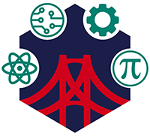Project Making Mathematics Matter (TIPM)
Impact
The projects which evolved into TIPM and which form its base have received recognition from a variety of sources including the Michigan Association of School Boards and the US Office of Education. Rigorous evaluation has provided extensive evidence of effectiveness over years of operation, not only in teacher acquisition of deeper content for teaching, but also in classroom implementation and student impact. TIPM represents the pinnacle of government investment in developmental projects; through the culmination of prior efforts, a sustainable and ongoing professional development emerges and thrives with enthusiastic financial support from local districts. Beginning in 2011, TIPM has operated parallel to the state level MSP Project PRIME, offering the same program on a tuition basis to Title 1 teachers in Wayne County. During 2016-2017, three TIPM courses included a total of 147 teachers from 51 schools and 19 districts. For 30 years, the MMSCN has provided Michigan teachers with evidence-based services in STEM subject matter, curriculum standards, instruction and classroom practices, and student engagement strategies. These STEM programs—in the form of summer institutes, year-long workshop series, job-embedded activities, and/or online sessions—are designed to help teachers prepare their students for careers and college. Programs include options such as Making Mathematics Matter (TiPM), which won the 2013 Michigan Association of School Boards Best of the Best Award.
Accomplished
- Need Accomplished
- Evaluation Accomplished
- Sustainability Developing
- Replication & Scalability Accomplished
- Partnerships Developing
- Capacity Accomplished
- Challenging & Relevant Content Accomplished
- STEM Practices Accomplished
- Inspiration Accomplished
- Under-Represented Groups Developing

Design Principles
The programs in this database clear a high bar. STEMworks reviewed each program against the Design Principles for Effective STEM Philanthropy. Programs must be Accomplished () across all Design Principles, or be Developing (
) in a maximum of three areas.
Overarching Principles
-
Need Accomplished
Identify and target a compelling and well-defined need.
-
Evaluation Accomplished
Use rigorous evaluation to continuously measure and inform progress towards the compelling need identified.
-
Sustainability Developing
Ensure work is sustainable.
-
Replication & Scalability Accomplished
Demonstrate replicability and scalability.
-
Partnerships Developing
Create high impact partnerships.
-
Capacity Accomplished
Ensure organizational capacity to achieve goals.
STEM Principles
-
Challenging & Relevant Content Accomplished
Offer challenging and relevant STEM content for the target audience.
-
STEM Practices Accomplished
Incorporate and encourage STEM practices.
-
Inspiration Accomplished
Inspire interest and engagement in STEM.
-
Under-Represented Groups Developing
Identify and address the needs of under-represented groups.
Program Overview
The goal of the TIPM Institutes is to help teachers increase their mathematical content knowledge for teaching with a focus on addressing the Common Core State Standards (CCSS). The goal of the TIPM Institutes is to help teachers increase their mathematical content knowledge for teaching with a focus on addressing the Common Core State Standards (CCSS). The construct of Mathematical Content Knowledge for Teaching includes the following three components: * Mathematical content knowledge about the content being taught over the course of the year * Pedagogical knowledge about effective teaching strategies for students to learn the content * Curricular knowledge about effective sequencing and scaffolding of content to help students make mathematical connections (Hill & Ball 2004). In support of the overall goal, TIPM focuses on Michigan teachers of mathematics to gain: * a deeper understanding of mathematics content and pedagogy * the ability to integrate the appropriate standards of practice in classroom instruction * the ability to integrate geometry and algebra instruction * the capacity to utilize an inquiry approach to instruction * the skill to utilize formative assessment data to guide and differentiate instruction * an understanding of new content expectations CCSS and * the ability to help students develop the quantitative skills needed to be successful. As the facilitator of TiPM, MMSCN meets the need for STEM-related educational services by being the only boots-on-the-ground provider in Michigan, including professional learning for all teachers statewide. MMSCN analyzes constituent needs and quickly mobilizes, plans, and implements effective programs and services. A focus on the application of content is an important attribute characterizing a STEM focus on the Standards framework for integrating important content into real life problem solving settings.
Funders and Partners
For 30 years. the Michigan Mathematics and Science Leadership Network has collaborated with state and national professional organizations, including: Michigan Association of Intermediate School Administrators Mathematics Leadership Team and General Education Leadership Network (MAISA MLT and GELN); Michigan Association for Computer Users in Learning (MACUL); Michigan Council of Teachers of Mathematics (MCTM); Michigan Mathematics Coordinators and Consultants (M2C2); Michigan Science Professional Learning at the Network (MISCIPL@N); Michigan Science Standards (MiSS) Team; Michigan Science Teachers Association (MSTA); MSU CREATE for STEM; National Council of Supervisors of Mathematics (NCSM); National Science Teachers Association (NSTA); MEMSPA (Michigan Elementary and Middle School Principals Association); MASSP (Michigan Association Secondary School Principals); Universities and Colleges in Michigan and Nationally: Grand Valley State University, Northern Michigan, Saginaw Valley State University, Central Michigan University, Northwestern, Michigan State University, Lake Superior State University, University of Michigan, Clark University, Arizona State
